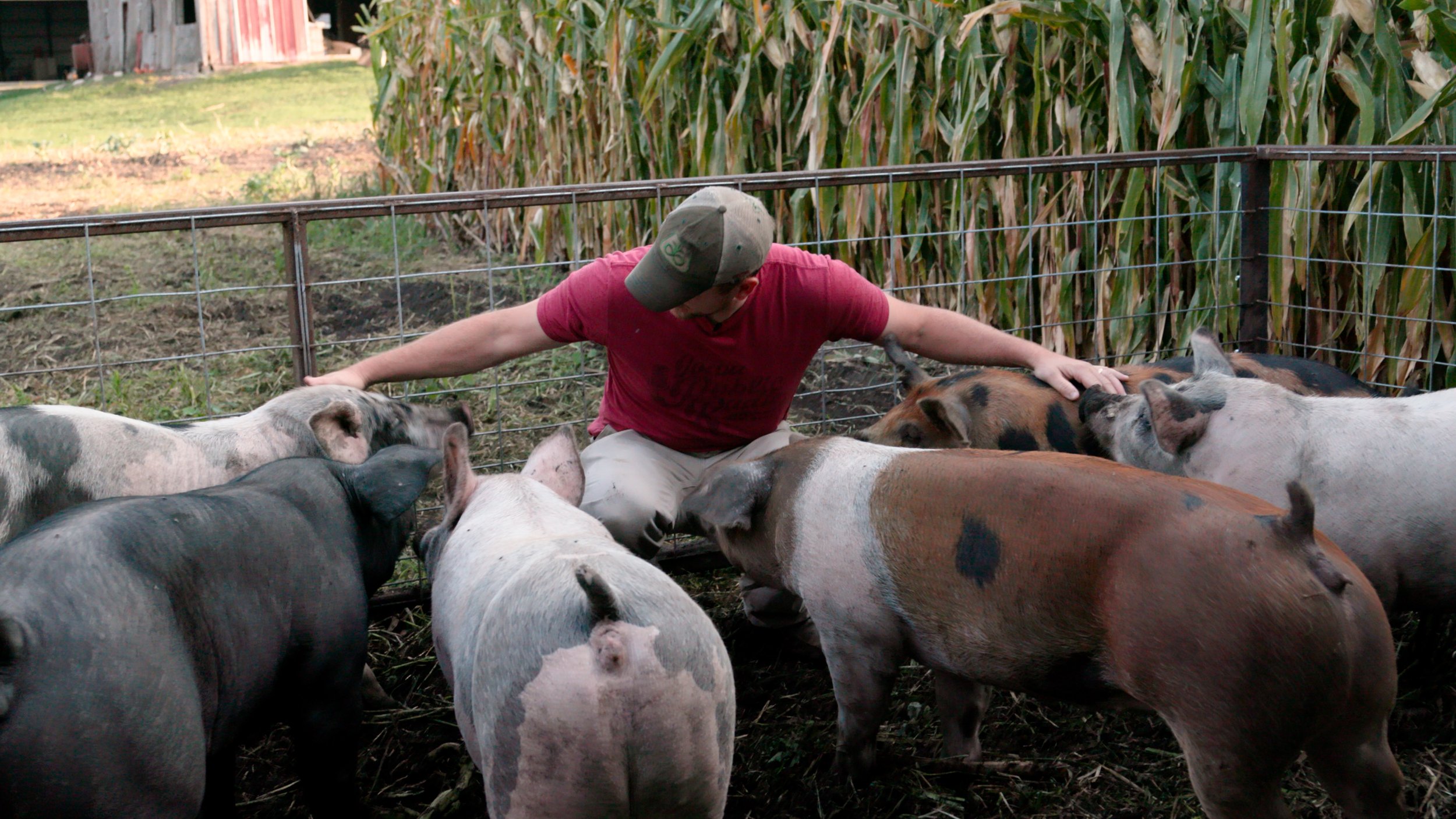Food, Inc. 2: You Are What You Eat (Gulp) in This Must-See Sequel
By Liz Braun
Rating: A+
During the pandemic, all the weaknesses in the food industry were laid bare.
That’s the starting point of Food, Inc. 2, a sequel to the Oscar-nominated Food Inc (2008), a film that helped change the way people eat.
Food, Inc. 2 is a gobsmacking compendium of scary information about food systems and monopolies, what we eat, what it does to us and what will happen next. (Hint: fewer farmers, more diabetes.)
Although no sequel was intended for the first movie, Food, Inc. 2 became a necessity once the pandemic revealed everything that was wrong with food production and distribution in America.
Big agro dominates the system. A handful of companies control everything. When the pandemic hit and supply chain issues began, people discovered that the system was brittle — supermarket shelves sat empty while pigs were euthanized because they couldn’t be processed, and farmers destroyed fresh milk and crops.
The system could not pivot or adjust. So intense are these monopolies that two companies control 80 percent of the entire baby formula market, and during the pandemic, the closure of a single factory took almost half the nation’s supply off the shelves.
Directed by Robert Kenner and Melissa Robledo, Food, Inc. 2 features the commentary of authors Michael Pollan (The Omnivore’s Dilemma) and Eric Schlosser (Fast Food Nation).
It falls to Schlosser to talk about the meat-packing industry during the pandemic, and in particular, the activities of the Tyson behemoth, where, for example, fully half of 2,500 plant workers in Waterloo, Iowa had Covid-19 and went to work anyway.
Tyson, the second largest processor and marketer of beef, chicken, and pork in the world, had no Covid policy on protecting workers. A patriotic appeal to then-President Trump — America will run out of meat! — won them an exemption so they could stay open during the pandemic.
Covid soon seeped out of that Iowa meat-packing plant into the community, with a consequent uptick in deaths. A local cop who appears in the film notes that Tyson claimed to be feeding America, but also sells their products overseas.
As he puts it, “That was blood money. They didn’t care about our citizens.”
He also describes the experience of watching assembly line meat workers, sick with Covid, turn away from the line briefly when they had to vomit.
The history of how such monopolies came to be is outlined in the film. Today, there are three companies controlling all dried cereals and four controlling the beef industry. Dairy products are likewise being controlled by fewer and fewer companies.
Small dairy farmers are going bankrupt because all the milk processors have merged; mega-dairies now operate in California, where they suck up so much water they leave neighbouring communities without any to drink.
Fruits and vegetables, meanwhile, are harvested by a form of contemporary slavery — a mostly Asian and Latino workforce that was also without any health protections during Covid.
By the time Food, Inc. 2 moves into fast food and ultra-processed foods, which fuel chronic disease and have created global obesity, you may feel a sense of despair. It doesn’t help to learn that fast-food workers in America are so underpaid that many rely on food stamps and Medicaid, which means taxpayers are subsidizing the fortunes of outfits such as McDonalds and Walmart. The minimum wage in 20 U.S. states has been $7.25 an hour for 15 years.
Animal cruelty, factory farms, Big agro monopolies, a human workforce treated as expendable — it all has to change.
Food, Inc. 2 does end on a positive note, with a focus on individuals who are trying to make that change. One farmer has designed a moving barn where the animals do their intended jobs — graze, poop, move dirt around — to combat soil depletion. A former fisherman now farms kelp instead. Various countries are passing laws to combat ultra-processed foods.
Montana Senator Jon Tester wants to tackle anti-trust and agricultural policy so the government supports healthy calories and food, safe workplaces, a living wage and no animal cruelty. Hope his constituents are paying attention.
Food, Inc. 2. Directed by Robert Kenner and Melissa Robledo. With Michael Pollan, Eric Schlosser, Senator Jon Tester, Senator Cory Booker. In theatres April 19 in Toronto at the Hot Docs Theatre and in other Canadian cities throughout the spring.



